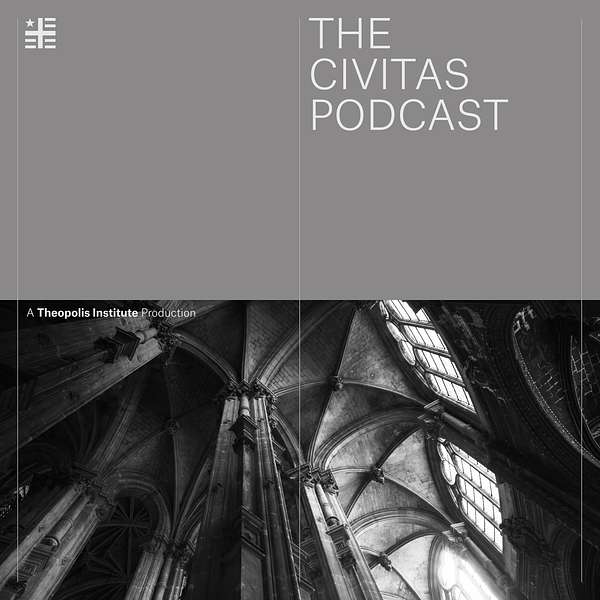
The Civitas Podcast
The Civitas Podcast, co-hosted by Peter Leithart and James Wood, exists to explore Christian political theology, with a specific focus on contemporary debates about liberalism and post-liberalism, and to elaborate a distinctively "ecclesiocentric" Theopolitan version of post-liberalism.
The Civitas Podcast
Episode 04: A Conversation with D.C. Schindler
Use Left/Right to seek, Home/End to jump to start or end. Hold shift to jump forward or backward.
Peter Leithart and James Wood talk with D.C. Schindler about his father's work, liberalism, and post-liberal discourse.
_______
About Dr. Schindler
Dr. Schindler’s work is concerned above all with shedding light on contemporary cultural challenges and philosophical questions by drawing on the resources of the classical Christian tradition. His principal thematic focus is metaphysics and philosophical anthropology, but he also works in political philosophy, phenomenology, the philosophy of science, the philosophy of religion, and philosophical theology. His main historical areas are ancient Greek philosophy (especially Plato and Neoplatonism), German philosophy (especially Hegel and Heidegger), and Catholic philosophy (especially Aquinas and 20th Century Thomism).
Dr. Schindler studied the Great Books as an undergraduate at Notre Dame, received a Master’s degree in theology at the John Paul II Institute, and then completed his education with a Master’s degree and a Ph.D. in philosophy at The Catholic University of America. After teaching for twelve years at Villanova University, first as a teaching fellow in philosophy and then as a founding member of the Humanities Department, Dr. Schindler returned to Washington, DC to teach philosophy courses at the Institute. He has published more than a dozen books—including two volumes of a planned trilogy on the nature of freedom with the University of Notre Dame Press and a Robert Spaemann Reader with Oxford University Press—and more than 70 articles and book chapters, and his work has been translated into six languages. He is an editor of the English-language edition of Communio: International Catholic Review, and a board member of The Review of Metaphysics and New Polity: A Journal of Post-Liberal Thought; he is a translator of books and articles from French and German; he is a Fellow of the Institute for Human Ecology at CUA and served on the Executive Council of the American Catholic Philosophical Association; and he has been invited to deliver named annual lectures in a variety of venues, including the Thomas Aquinas Lecture at four universities and colleges, the Bitar Memorial Lecture series at Geneva College, the John Paul II Lecture at the University of Dallas, the Lorenzo Albacete Lecture in New York City, and the Areopagus Lecture at Mars Hill Audio Journal in Charlottesville, VA.